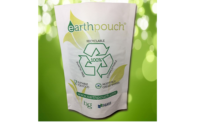A new poll revealed overwhelming support for clothing deliveries to be packaged in compostable bags over conventional plastic bags. Some 86% of consumers are concerned by the plastic waste generated by retailer polybags — the plastic packaging used to protect clothing for shipment or delivery.
A further 9 in 10 say they would prefer brands to use environmentally friendly alternatives, with 92% stating that they would prefer compostable packaging to be used over conventional plastic bags.
It is estimated that more than 150 billion plastic polybags are produced each year.1 These are largely single-use, unrecyclable bags used to protect clothing transported either from factory to store, or to homes in e-commerce deliveries.
During Milan Fashion Week in September 2021, a three-day event was held in tandem to discuss The Sustainability Pledge, brokered by the UNECE. Working with policymakers, businesses, academics and NGOs, a toolbox to ensure sustainability in the garment and footwear sector has been created including recommendations to increase transparency and traceability.
The Italian Government announced that it would be using the policy recommendations to develop legislation on circularity in the garment industry in Italy.2 However much of the focus is placed on the materials used to create garments, with packaging flying under the radar.
TIPA and Santini, one of TIPA Italy’s Partners, argue that fully circular packaging is a key factor in ensuring the sustainability of the industry’s supply chains, and the Government must encourage transparency on plastic packaging use and encourage the use of sustainable materials, including compostables, as alternatives to ensure brands make the switch.
Annalisa Nissola, sales director for Italy at TIPA, says, “The Italian fashion industry has world-renowned heritage, and is in a unique position to lead the change for sustainable supply chains that include shifting from plastic packaging to fully circular alternatives including compostables.
“The consumer demand is there, and revolutionary brands such as Santini are already leading the way by setting new industry standards. We’re here to facilitate the transition for more brands, and to work with the Government to put the parameters in place that ensure packaging sustainability becomes a key part of the efforts to encourage circularity in the industry.”
Paola Santini, marketing manager, Santini Cycling Wear, says, “We are proud to work with TIPA to supply our technical garments for cycling and triathlon in compostable packaging contributing to the reduction of plastic waste in our supply chain. We hope that in making the move to sustainable garment bags, we will inspire others to do the same. The survey has shown that consumers are demanding compostable packaging and the industry need to listen.”
The NORSTAT nationally representative survey of 1,080 Italian adults was commissioned by TIPA.
For more information visit www.tipa-corp.com.









